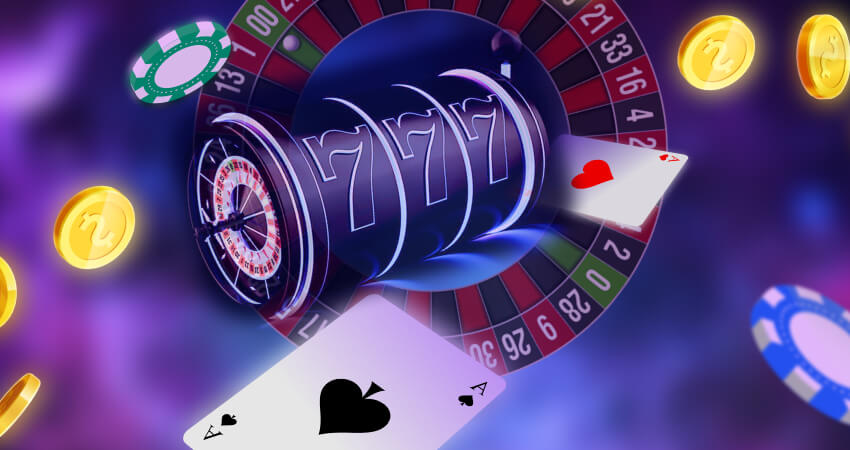
Blockchain Technology Reshaping Casino Gaming
The world of casino gaming is undergoing a significant transformation, largely driven by the rise of blockchain technology. Players and operators alike are beginning to understand the numerous benefits that this revolutionary technology can bring to the gaming space. As we delve into the intricacies of blockchain, it becomes evident that it offers solutions to problems that have plagued the industry for years. From improved security measures to better transparency, here’s how Blockchain Technology Reshaping Casino Gaming jeetbuzz promo code blockchain technology is reshaping casino gaming.
The Basics of Blockchain Technology
Before we explore its implications in casino gaming, let’s first understand what blockchain technology is. At its core, blockchain is a decentralized and distributed digital ledger system that records transactions across many computers. Once a transaction is recorded, it cannot be altered, which ensures a high level of security and trust among users. This immutability and transparency are what make blockchain particularly attractive to the online gaming industry.
Enhanced Security and Fraud Prevention
One of the most significant advantages of blockchain technology is its robust security features. Traditional online casinos often face considerable risks related to data breaches and fraud. With blockchain, every transaction is encrypted and cryptographically secure. This means that a malicious actor would find it nearly impossible to alter any transaction history, which significantly reduces the chances of fraud.
Moreover, self-executing smart contracts – programmed agreements that automatically execute when conditions are met – add another layer of security. In a casino context, this can simplify processes such as payouts and game outcomes, ensuring that players are always dealt with fairly.
Transparency and Trust
In an industry where trust is a significant factor, blockchain offers a transparent alternative to traditional gaming systems. All transactions can be viewed in real-time by all participants, establishing a level of openness that is often lacking in conventional casinos. This means players can independently verify odds, payouts, and game fairness.
Transparency doesn’t just benefit the players. For operators, having a blockchain-based system means increased confidence from players, leading to higher retention rates and potentially increased profits. Players are more likely to engage with a platform they know they can trust, and blockchain provides that assurance.
Decentralization and Player Empowerment
Another revolutionary aspect of blockchain in casino gaming is its decentralized nature. Traditionally, casinos act as middlemen, controlling the flow of money and games. Blockchain technology enables peer-to-peer gameplay without the need for intermediaries. This shifts the balance of power from the house back to the players, allowing for a more egalitarian gaming experience.

Additionally, decentralized applications (dApps) built on blockchain can create innovative gaming formats and environments that are not possible in traditional settings. Players could potentially create their own games, rules, and even currencies, directly participating in the evolution of the gaming ecosystem.
Lower Costs for Operators and Players
The integration of blockchain technology can lead to lower operational costs for casino operators. Traditional financial systems typically involve a range of fees related to payment processing, banking, and currency exchange. Blockchain can significantly reduce or eliminate these costs due to its efficient, low-cost nature.
For players, this means that they may benefit from lower fees and potentially higher payouts. The enhanced efficiency of blockchain transactions can lead to quicker withdrawals and deposits, further enhancing the player experience. This combination of reduced fees and improved service is likely to be a significant draw for new users.
Cryptocurrency in Casino Gaming
The rise of cryptocurrencies, such as Bitcoin and Ethereum, is another exciting development facilitated by blockchain technology. Many online casinos have already begun accepting cryptocurrencies as a form of payment, appealing to a new generation of players who prefer using digital currencies. This not only streamlines transactions but also offers added anonymity, which is a desirable feature for many users.
Furthermore, utilizing cryptocurrencies can eliminate currency conversion issues for international players, making global gaming more accessible and attractive. As regulations around cryptocurrency evolve, it’s likely that more casinos will integrate this payment option, broadening their appeal.
The Future of Blockchain in Casino Gaming
As the technology matures, we can expect further innovations in how blockchain can be leveraged within the casino gaming industry. Partnerships between established gaming operators and blockchain startups are likely to define the landscape in the coming years. Initiatives that explore virtual reality and augmented reality combined with blockchain, for instance, could lead to immersive and engaging gaming experiences that we can only begin to imagine.
Moreover, regulatory frameworks are slowly beginning to adapt to this new technology, with several jurisdictions exploring how to best integrate blockchain into their existing gaming laws. As regulations become clearer, more operators may feel comfortable adopting blockchain solutions.
Conclusion
The adoption of blockchain technology in casino gaming promises to enhance security, transparency, and the overall player experience. As both players and operators begin to recognize and embrace these benefits, we can expect a more secure and engaging future for online gaming. The innovations brought forth by blockchain are not merely passing trends; they will likely redefine the industry standards and create a new realm of possibilities for both gaming enthusiasts and operators alike.
